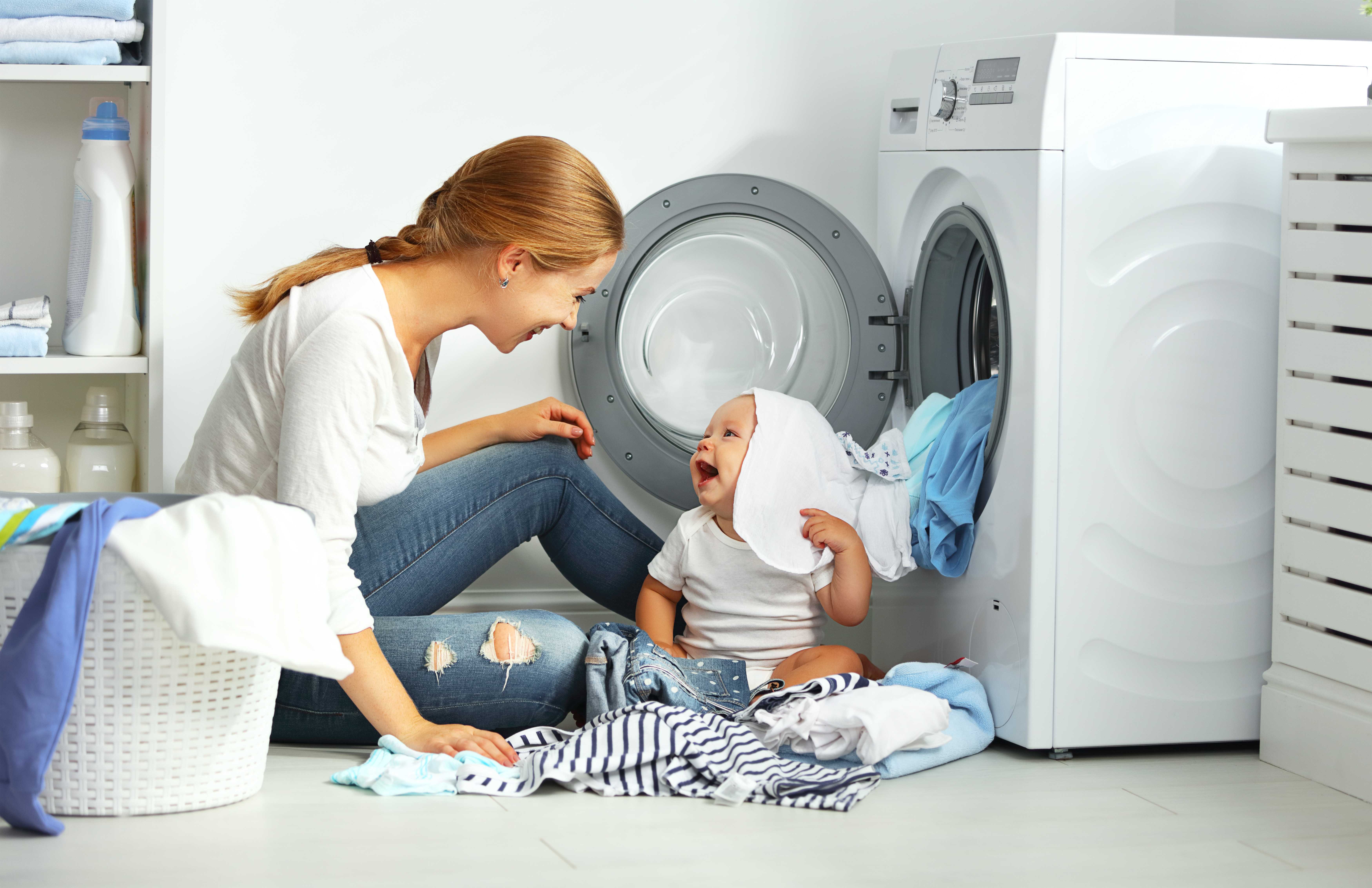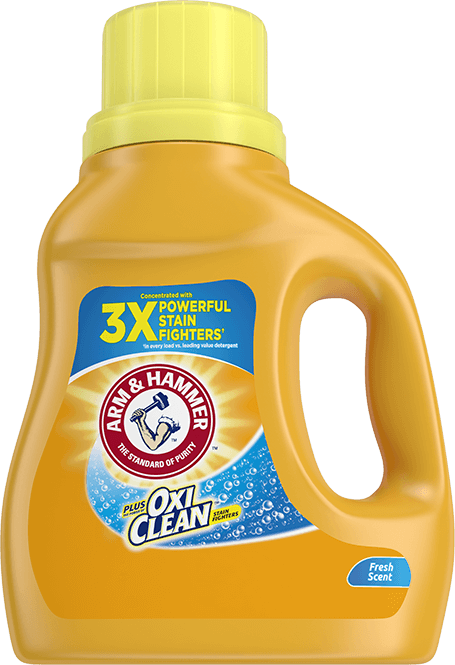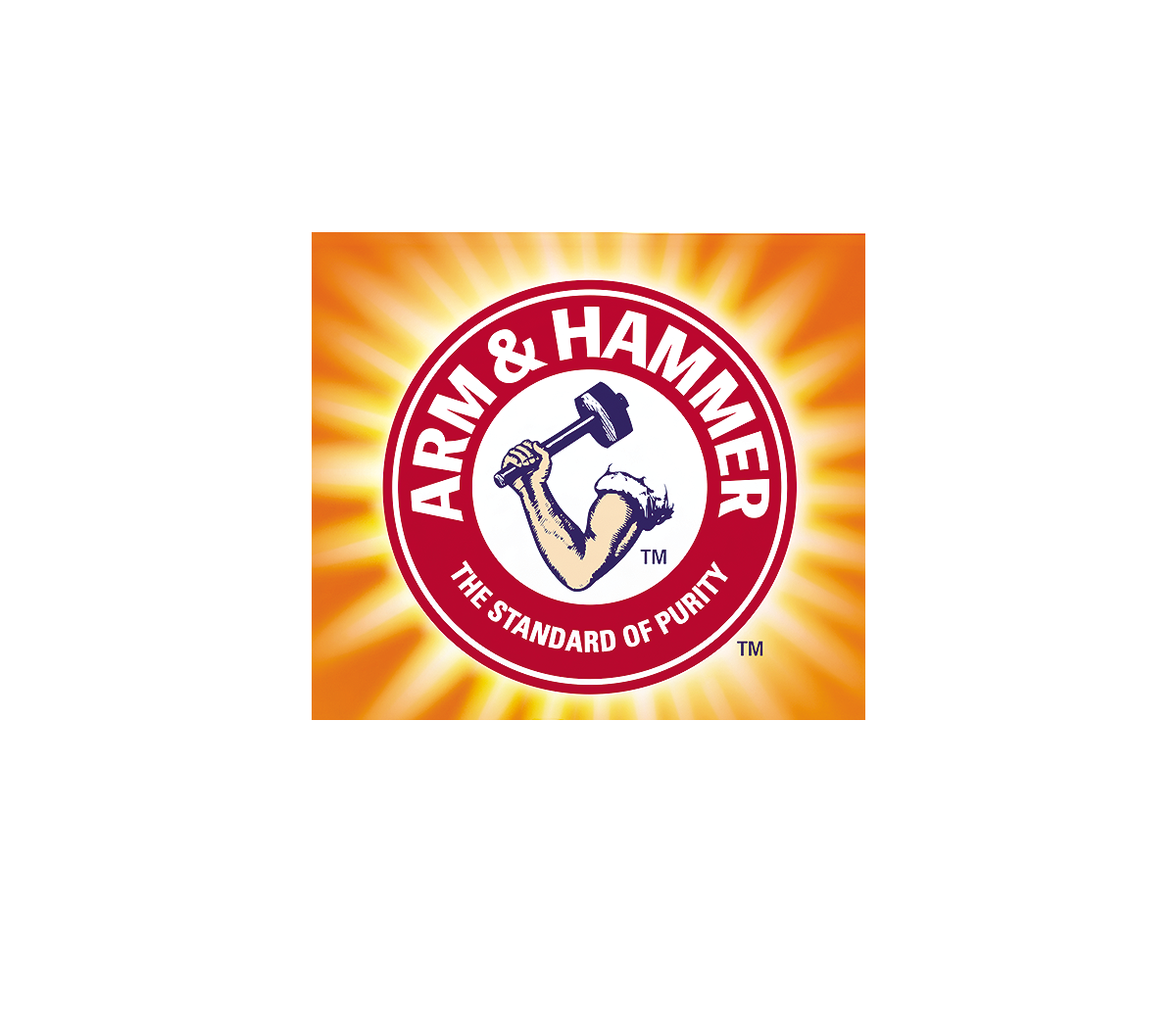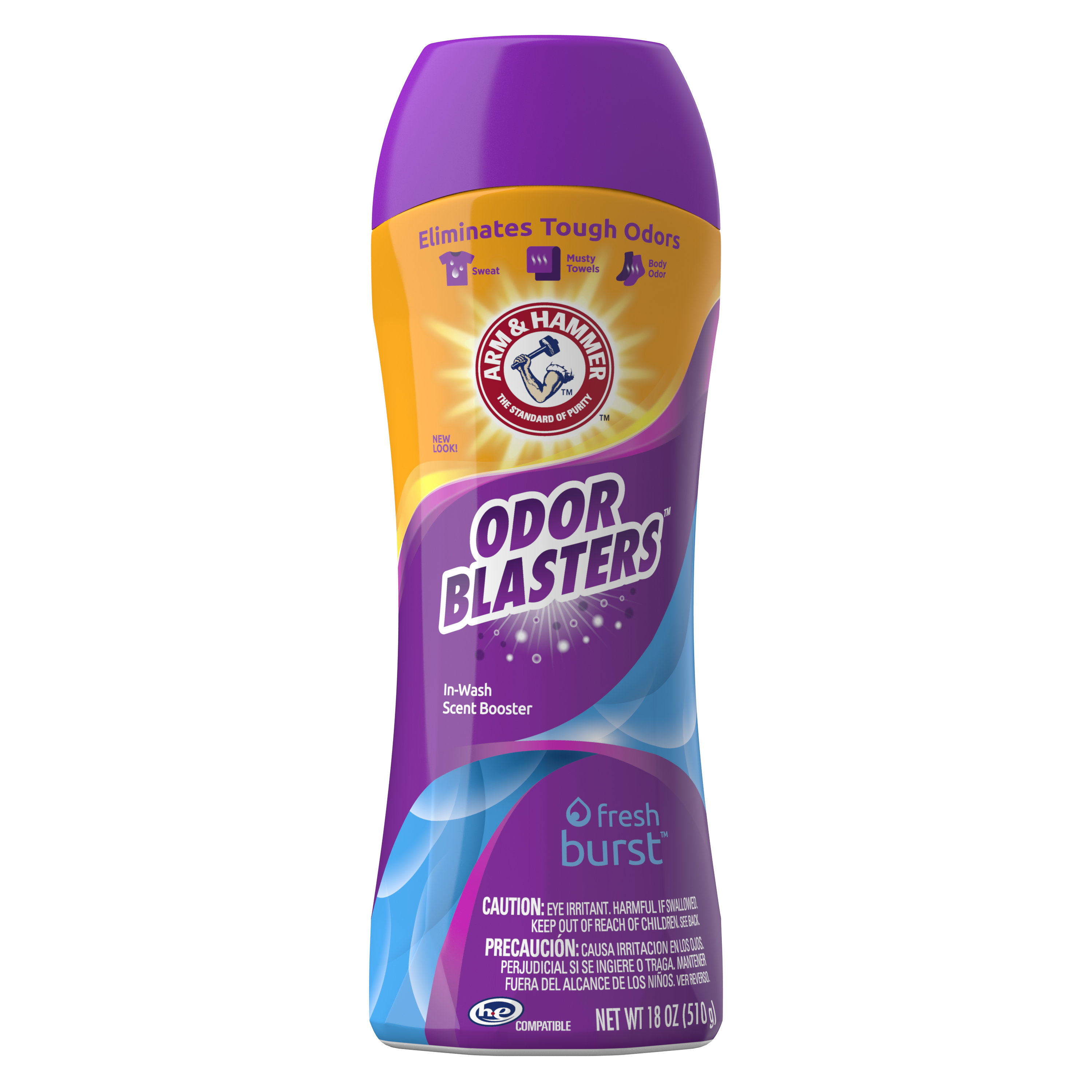How to Wash Baby Clothes
Babies don’t come with how-to manuals or diagnostic codes that help you identify what may be troubling them. As a parent, you must learn how to decipher baby sounds and expressions to know the difference between “I’m lonely,” or “I’m hungry,” and “I’m cold” or “This onesie itches.”
With all the things to think about, how to wash your baby’s clothes and which detergent to use may not be at the top of the list.
That’s ok. Safely washing baby clothes doesn’t have to be difficult. Follow our tips on baby laundry so you can get back to playing with baby or catching up on your z’s. Post-baby sleep deprivation is real.
1. Use a baby-friendly laundry detergent: Here’s what to look for
When it comes to baby-friendly detergents, you want fewer, gentler ingredients – without sacrificing stain-fighting power. Look for a baby-friendly detergent that’s either formulated specifically for babies or that has these qualities:
- Is hypoallergenic
- Is free of dyes, preservatives, and enzymes
- Is fragrance-free or has a hypoallergenic fragrance
- Is tested by dermatologists and pediatricians
- Contains ingredients recognized by the EPA Safer Choice program
- Contains gentle but effective stain-fighters
- Does not contain GMOs, brighteners, or parabens
2. What washing machine setting is best for baby clothes?
Always follow the instructions on the garment’s care label, but in general, delicate baby clothes such as lacy dresses or layette items are best washed on a gentle or delicate cycle with other lingerie, knits, or undergarments. For items such as booties or bonnets that have strings, use a mesh laundry bag to help avoid tangling.
If your washer includes a cycle with extra rinses, that’s a great option for washing baby clothes. The extra rinse will help remove detergent traces in the clothing fibers.
3. What temperature should I wash baby clothes at?
Hot water can cause clothing fibers to pill and it’s not recommended for all fabrics. The best machine-wash cycle for baby clothes is the hottest temperature the garment’s care instructions recommend. This advice goes for all clothing and laundered items, whether your own, your family’s, or your newborn’s. Review each item’s label and make sure you know what the laundry symbols mean.
If you’re washing in cold water to save energy and help fabrics last longer, be sure to use a detergent like ARM & HAMMER™ Baby Liquid Laundry Detergent that is tough on baby stains even in cold water.
4. Should You Wash Baby Clothes Before Wearing?
Washing baby clothes and other items that touch baby’s skin before using them is a good idea. Most clothes, including newborn and baby clothes, are sprayed with chemicals such as optical brighteners so they look crisp, new, bright, and unwrinkled in the store. Washing before wearing will help remove these sprays from the fabric and help prevent the chemicals from contacting baby’s skin.
Use a baby detergent formula without added brighteners to avoid reintroducing them in the wash.
5. How much laundry detergent should I use when washing baby clothes?
Follow the measurements on your detergent bottle’s label and don’t eyeball it when it comes to adding laundry detergent to your washer. Using too much detergent in your washing machine can lead to skin irritation.
When you use too much detergent, it can be more difficult for the washer to rinse all the soap residue from the items and the machine. Follow the manufacturer’s directions and only use the proper amount and type of detergent in your washing machine.
6. Should You Wash Baby Clothes Separately from Other Clothing?
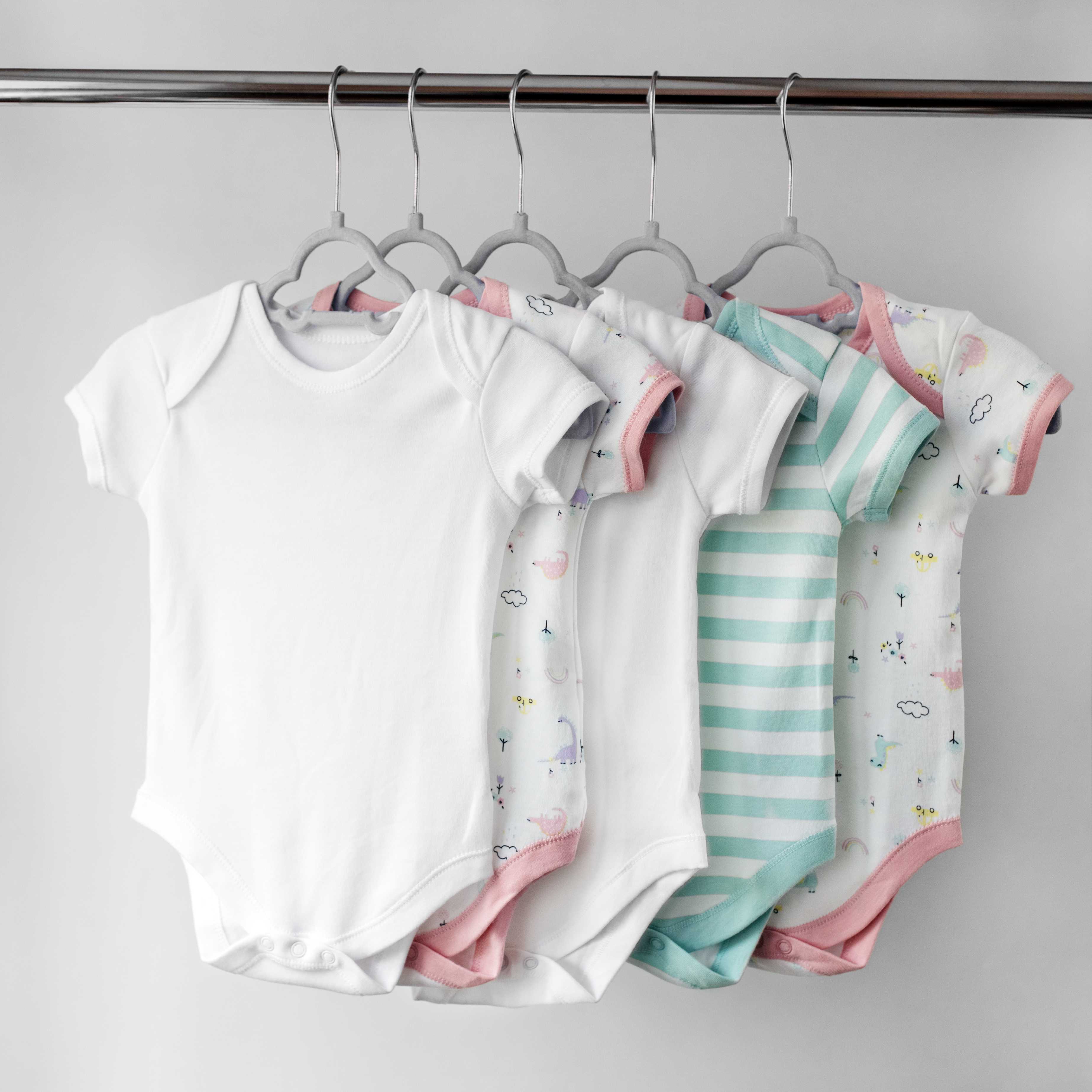
You may choose to wash baby’s items by themselves using a gentle, baby-friendly detergent. However, it isn’t always necessary to separate baby’s clothes from the rest of your family’s laundry. A lot depends on what detergent you use, how dirty baby’s clothes are, what other items you’re also washing, and your laundry routine needs. Here are some tips:
- If your baby has an accident that soils their clothes, rinse the items in cold water to remove as much soil as possible before washing in your machine. Consider washing heavily soiled clothes separately from other items. You may also want to use extra rinses and run the clothes through a second wash cycle.
- Cloth diapers and diaper covers should always be separated from your regular laundry. Diapers touch the most sensitive areas of your baby, so you want to get them especially clean to avoid irritation.
- If your baby doesn’t have sensitive skin or you already use a free & clear laundry detergent for other members in the family, you might choose to combine baby’s clothes and bedding with the other sorted items among your family’s laundry. After you separate laundry by color or wash temperature, add your baby’s items to these sorted loads and wash using the correct cycle for the type of clothing.
7. Skip the Fabric Softener or Dryer Sheets when Washing Baby Clothes
Avoid anti-static products or fabric softeners when washing baby clothes. Liquid fabric softener or dryer sheets can reduce the flame retardancy of baby and children’s clothes. Sleepwear must be flame retardant, so it’s best to skip these laundry additives while children are young.
Softeners or anti-static sheets include chemicals and fragrances that can irritate the nose or skin as well.
8. Keep Baby in Mind when Washing Family Clothes & Blankets
Don’t forget to think about anything that will touch baby's skin, such as blankets, bedding, and mom's or dad's shirts. Wash all these items as you would your baby’s clothes: with a liquid detergent free of dyes and perfumes and without added fabric softener.
When baby is snuggling against your shoulder, you don’t want your clothes to be a source of irritation!
9. Other Tips for Washing Baby Clothes
- Fasten bibs before washing.
- Fasten any Velcro tabs before washing to keep them from snagging other items.
- Rinse baby clothes thoroughly. Detergent that is not rinsed from clothes can irritate skin.
- Wash cloth diapers and diaper covers separately in hot water and extra rinses. Choose a baby or free & clear detergent to minimize any allergens or irritants that will touch baby’s most sensitive parts.
Does Your Baby Need a Special Detergent for Baby Clothes?
Baby skin is more sensitive than adult skin – that’s because it’s so new and hasn’t encountered outside irritants like sunlight, heat or sweat, wind, pathogens, fragrances, dyes, or fabric chafing. That’s also why baby formula soaps, shampoos, and laundry detergents are made to be gentle. It’s better to start with the gentlest detergent formulas and then work up to other detergents as your newborn’s skin matures and you get a sense of how sensitive it may be.
Follow these steps:
- Start with a baby formula detergent, such as ARM & HAMMER™ Baby Liquid Laundry Detergent. You can also try a free and clear formula like ARM & HAMMER™ Sensitive Skin laundry detergents, since dyes and fragrances are often the culprit for skin irritation.
- Plan to have baby wear the laundered item for a short time (~2 hours or less).
- Observe if baby sneezes, gets a runny nose, or gets a rash in areas where the clothing touches the skin, especially around the neck. If there is no irritation for your baby, continue using this detergent.
- If you’d like to integrate your baby’s clothes with your family’s laundry or you plan to switch detergents, wash a single item of baby’s clothing in the new detergent (or your family’s favorite), then have baby wear the item for a short period. If your baby shows any signs of sensitivity, go back to using a baby formula detergent and separating baby’s items or using a free-and-clear formula on everyone’s clothes and linens.
Check with your baby’s doctor for advice and treatment of allergies or eczema.
Laundry Detergents You Trust for Washing Baby Clothes
When it comes to washing your baby’s clothes, you want the power in the right places: gentle on baby, tough on stains. ARM & HAMMER™ Baby Liquid Laundry Detergent is tested by dermatologists and removes stains that babies and children bring, including baby formula, blueberry, sweet potato, and grape juice stains.
ARM & HAMMER™ Baby Liquid Laundry Detergent is a hypoallergenic washing detergent that’s free from unnecessary chemicals. There are NO dyes, phosphates, added preservatives, brighteners, parabens, GMOs, or animal-derived ingredients. This hypoallergenic formula meets U.S. EPA Safer Choice product standards to be safer for people, pets, and the planet. With just 6 essential ingredients and water, it’s more of what you want and less of what you don’t. Plus, we think you’ll love the allergen-free fragrance that’s specially designed for a fresh baby smell.
For other laundry detergents that are gentle for baby but tough on dirt and stains, try:
